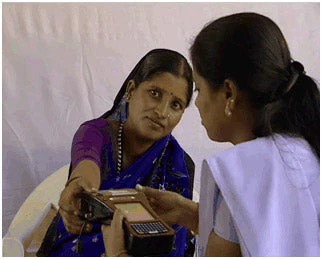
Even a cursory glance at the Internet would tell you there is a lot going on in the Bank on Open Development. Add in cutting edge approaches using SMS messaging by Think Tanks, CSOs and Foundations and you quickly see that mapping for results, crowd-sourcing, beneficiary feedback, and Open Data hold out enormous promise of leveraging technology for more effective development - as the technology grows and cheapens, we've all only begun to scratch the surface of its full potential.
Last week in Ireland at a speech at the Institute for International and European Affairs, I tried to capture some of the excitement of that work (link to speech) and how it reflects a changing economic balance of power both among states and within them: if 2/3rd of global growth is coming from developing countries maybe 2/3 of ideas are too. Knowledge, combined with technology, can now make that ideas-generation possible across borders, continents and social strata. It isn't hard to imagine a future of "beneficiary implementation support" where beneficiaries are full partners in supervision reports and evaluation, prompting mid-course corrections and feedback loops that integrate learning into program design and implementation.
Take Karnataka, India, where simple handheld devices and mobile phones allow core service providers to record each beneficiary visit, gather feedback directly from the citizens on the quality of the services they received. This Beneficiary Verification System pilot is helping bolster the state’s Maternal Health program, using a simple dashboard and red, orange, green traffic light system to inform the district officials in real time.
If we believe this kind of beneficiary input matters for development effectiveness, shouldn't we be looking to scale it up - or be offering a menu of approaches - not just in a project here and there but across our maternal health portfolio? And the same might be said for service delivery more broadly.
But even as we scale up, we also need to do a lot more on data generation, building on the good work we have done through STATCAP, the Accelerated Data Program, and the Statistics for Results Trust Fund Facility. Yes releasing the data matters, yes crowd-sourcing development solutions matters, yes building in social accountability matters. But are we still too often making critical policy judgements on the basis of too little information? I'm not arguing that it's either/or. It can and should be all these, and all can help reinforce each other.
For the stark reality is that though data collection around the world has improved, we still know much too little to be comfortable that policy is being informed by the facts on the ground. In 2003, only four countries had two data points for 16 or more of the 22 principal indicators for the Millennium Development Goals. By 2009, this had improved to 118 countries.
Data remains a matter of life and death. In 2009, the births of 50 million children went unrecorded. They entered the world with no proof of age, citizenship or parentage. That same year 40 million people died unnoted except by family or friends.
In South Asia, only one percent of the population is covered by complete vital registration records, and in Sub-Saharan Africa, only two percent. Lacking effective registration systems, countries must rely on infrequent and expensive surveys to estimate the vital statistics needed to support the core functions of government and to plan for the future. Many prefer to go without.
So shouldn't the Bank make this a central part of its global public goods agenda? Just as beneficiary feedback can be a key part of our local goods agenda? And doesn't that logically mean that global and country programs should be focused in this area? Without it aren't we too often condemned to navigate development in the dark? Welcome your views.


Join the Conversation